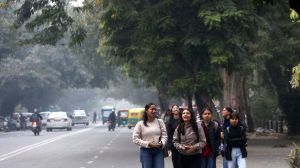Islamic invaders ravaged institutions, Britishers ruined social fabric: RSS joint gen secy Kumar
Arun Kumar also said that those Indians who came out of English education and established influence in India’s institutions post 1911, reduced the idea of freedom struggle to just self-rule and ended up accepting India’s Partition.
 RSS joint general secretary Arun Kumar (File)
RSS joint general secretary Arun Kumar (File)Islamic invaders destroyed India’s social institutions such as temples and universities, Britishers not only ravaged India’s economy but also tried to erase its social fabric and values, RSS joint general secretary Arun Kumar said on Saturday. He also said that those Indians who came out of English education and established influence in India’s institutions post 1911, reduced the idea of freedom struggle to just self-rule and ended up accepting India’s Partition.
Kumar was speaking at the launch of the book, ‘SWA: Struggle for National Selfhood’, by RSS-affiliate Prajna Pravah chief J Nandakumar, at the Ambedkar International Centre.
“There are four-five points of discussion regarding our Independence that need to be taken to the people. The nation has suffered a memory loss. There is a reason for that. During the struggle associated with Islam, many of our institutions, such as temples and universities, were destroyed. But our social system, economic systems and the family system remained intact. And because of that, we were able to withstand that struggle,” Kumar said.
According to Kumar, the “European invasion” needed to be understood deeply.
“What they did with our villages, our agriculture… we were global manufacturers and traders (when British came)… Slowly and steadily after introducing English education and through English laws, they tried to break the social system of the country. Making education and Census the basis, they started the process of creating various identities, which they (did through) de-nationalisation, de-hinduisation and de-socialisation. They tried to destroy the national feeling and integrity of the country and dismantled the social fabric of the society on religious lines,” Kumar said.
He said the freedom struggle could be divided into two parts. One part, he said, was between 1858 and 1911 where the struggle was inspired by the idea of India. “In this period, we were establishing our ‘gurukuls’, our Indian educational institutions, talking about education in our mother tongue, reforming society, discussing our cottage industry and ‘swadeshi’ movement. But by 1911, the people who came out of English education system and established influence in social, educational and media institutions, our struggle for independence was reduced to Swaraj. By 1947, it was reduced to somehow getting independence. And those who were not ready to accept the division of Bengal in 1905, became ready to accept the division of the country,” he said.
According to Kumar, the British rule could not be simply described as an East India Company trade adventure, they saw squabbling India and took advantage of it.
“When they came to India, they came with a background. Inspired by evangelical Christianity, the powers that rose first colonised Europe, then America, Australia and Africa. Then they came to Asia. They carried with them their experience and tyranny in these colonies. They came to India with the complex of white supremacy. They succeeded in other countries but not in India,” he said.
Kumar said Britishers didn’t just rule but murdered millions of people.
“About 2-crore people died in Bengal in famines created by the British. What they did with our villages, our agriculture… we were global manufacturers and traders (when British came). So, unless we understand what we were and what Britishers did, we will not get a sense of our own self-dependence,” he said.
- 01
- 02
- 03
- 04
- 05































